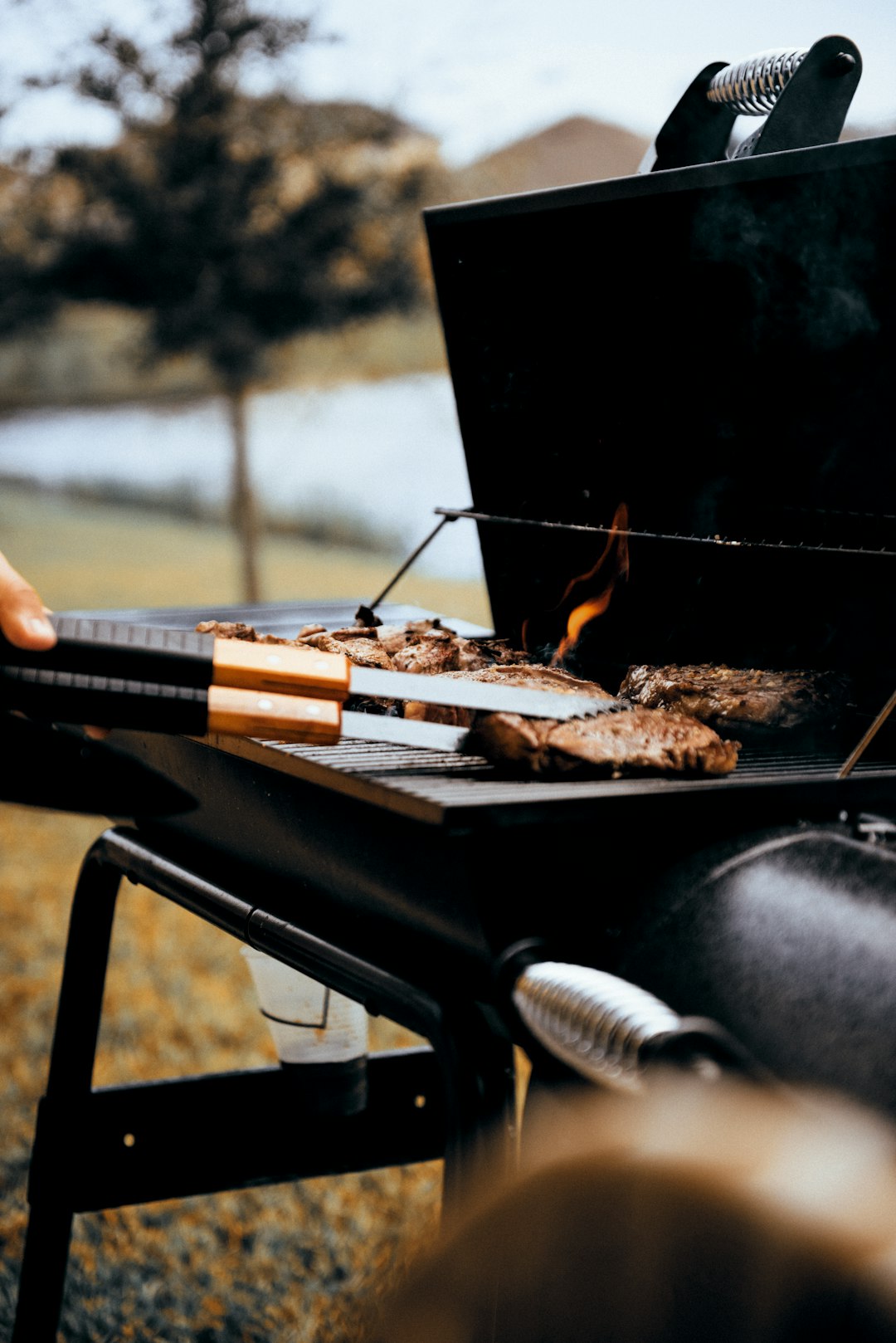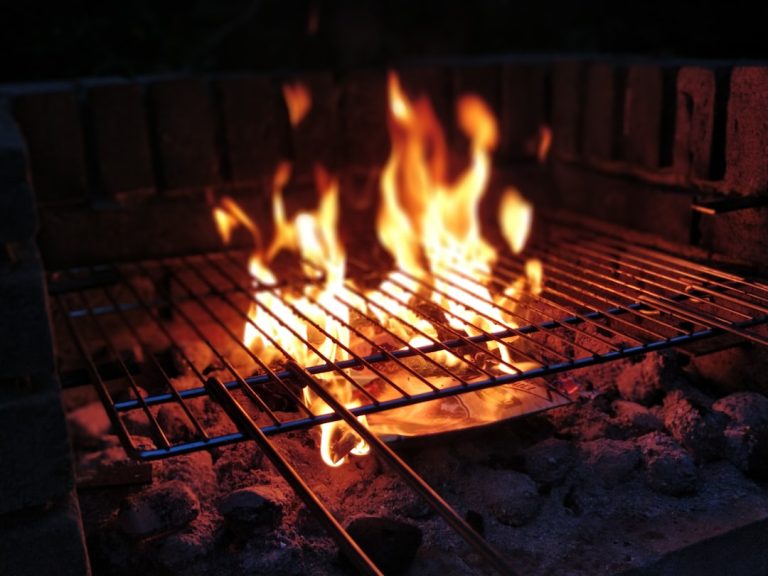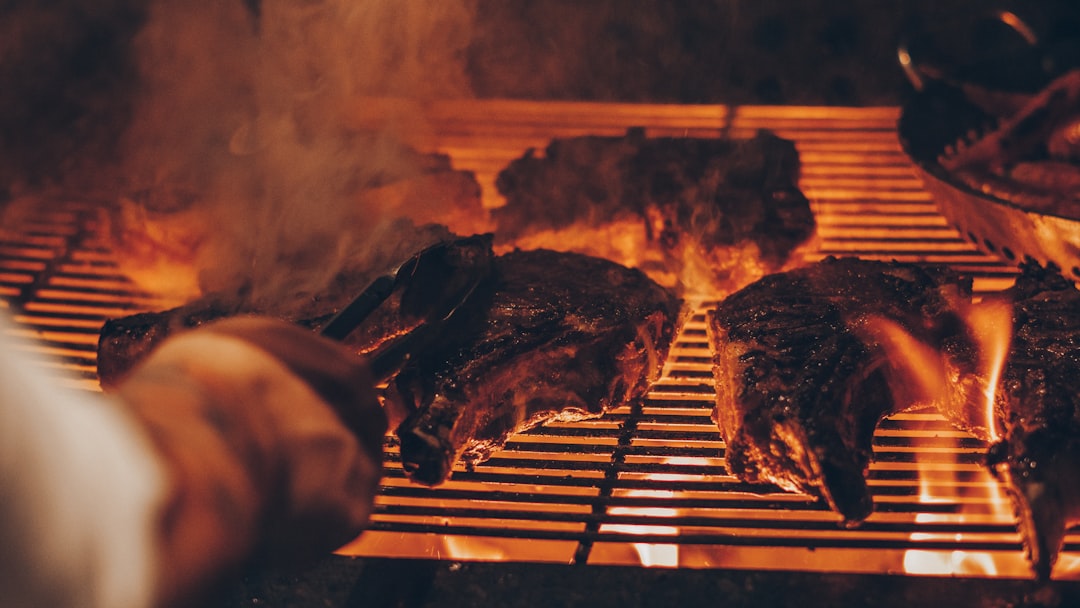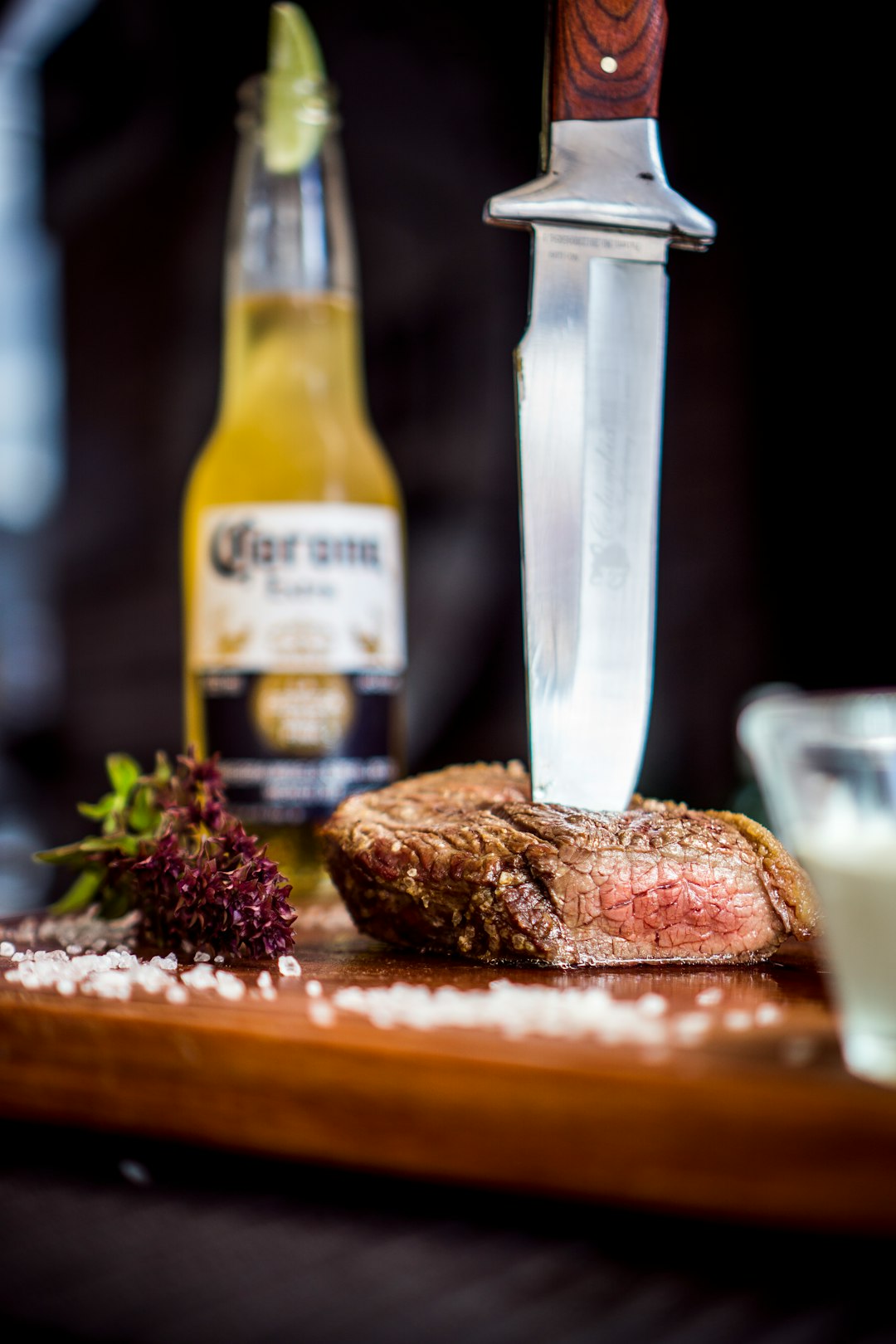Selecting the right lean meat cut, such as beef brisket or sirloin, and marinating it with BBQ spices is crucial for crafting a perfect BBQ jerky recipe. The slow smoking process at 225°F-250°F (107°C-121°C) ensures tenderness and flavor retention. Proper marination enhances taste, tenderizes meat, and prepares it for an exceptional smoky flavor in your backyard grilling experience.
Take your backyard BBQ to new heights with homemade smoked BBQ jerky! This ultimate guide provides essential tips for crafting the perfect jerky. Learn how to choose the right cut of meat, from lean beef to poultry, ensuring tender, flavorful results. Master the art of marinating to enhance taste, then discover effective smoking techniques for that signature jerky texture. We’ll also cover storage advice, customization ideas, and common pitfalls to avoid. Elevate your BBQ game with these expert tips for creating a delicious BBQ jerky recipe!
- Choosing the Right Cut of Meat for BBQ Jerky
- – Types of meat suitable for jerky
- – Considerations for tenderness and flavor
- The Art of Marinating for Maximum Flavor
Choosing the Right Cut of Meat for BBQ Jerky

When crafting your perfect BBQ jerky, selecting the right cut of meat is a crucial first step. Opt for lean cuts with minimal fat, as this ensures a tender and less greasy final product. Popular choices include beef round or brisket, which are known for their robustness in smoking processes. Many BBQ enthusiasts also favor pork shoulder or chicken breast for a lighter option.
Consider the texture you desire—whether you prefer your jerky slightly chewy or incredibly crisp—as this will guide your meat selection. A good BBQ jerky recipe starts with high-quality, suitable cuts, setting the stage for an exceptional backyard smoking experience.
– Types of meat suitable for jerky

When it comes to making BBQ jerky at home, the sky’s the limit in terms of meat choices. However, for a delicious and tender result, focus on lean cuts from high-quality sources. Chicken, turkey, and beef are popular options for a BBQ jerky recipe. These meats offer a good balance between flavor and texture after drying.
For a truly mouthwatering experience, opt for cuts like chicken breast or thigh, beef sirloin or flank steak, or turkey chest. Remember, the key is to select meat with minimal fat content; too much fat can make your jerky tough. Additionally, consider marinating your chosen cut in a blend of your favorite BBQ spices and sauces before drying for an extra burst of flavor in your DIY BBQ jerky recipe.
– Considerations for tenderness and flavor

When it comes to creating the perfect BBQ jerky, tenderness and flavor are key elements that can make or break your backyard grilling experience. To achieve a tender, flavorful jerky, start by selecting high-quality, lean cuts of meat. Beef brisket and sirloin are popular choices due to their natural marbling and ability to develop rich, smoky flavors during the cooking process.
Before smoking, consider marinading your meat in a combination of your favorite BBQ sauce, soy sauce, or a dry rub to infuse moisture and enhance the overall taste profile. The smoking process itself should be slow and steady, allowing the heat to gently break down the muscle fibers without overcooking the jerky. Maintain a consistent temperature between 225°F-250°F (107°C-121°C) and monitor it closely using a reliable meat thermometer to ensure even cooking and maximum flavor retention.
The Art of Marinating for Maximum Flavor

The key to unlocking the deepest, most complex flavors in your BBQ jerky lies in the marination process. Before smoking, submerge your meat strips in a flavorful marinade that penetrates each fiber, enhancing its natural juices and creating a rich, smoky taste. A good BBQ jerky recipe typically combines tangy acids like lemon or vinegar with sweet and savory ingredients such as brown sugar, Worcestershire sauce, garlic, and spices like paprika and peppercorns. Let the meat soak for several hours or even overnight to allow the marinade to work its magic.
Proper marination not only enhances taste but also tenderizes the meat, ensuring it becomes crispily delicious when smoked. Don’t be afraid to experiment with different marinades to find your perfect blend—the art of marinating is as much about creativity as it is about science.
